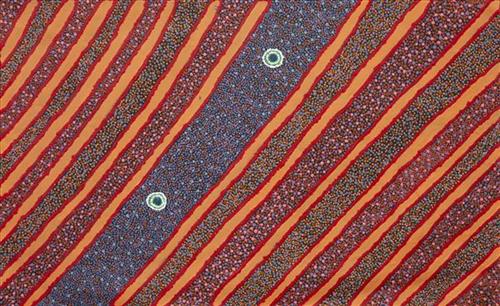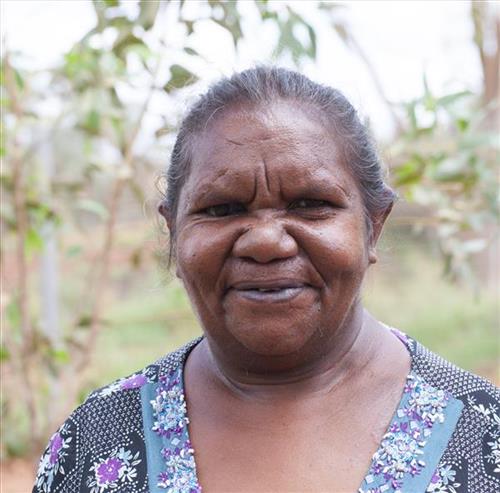111582159498
Ngurra
This work represents Emily Bumba’s ngurra (home Country, camp) through her father- a Mangala man from the Ngurrara (Joanna Springs) area. Traditionally Mangala speakers lived in the north-western section of the Great Sandy Desert. To the west of this area and on the Western Australian coast lies Bidyadanga community, Emily’s own birth place. As Emily states, this work depicts four soaks within her father’s Country. During the pujiman (traditional, desert dwelling) period, Aboriginal people would traverse very large distances annually in small family groups, moving seasonally from water source to water source, and hunting and gathering bush tucker as they went. At this time knowledge of water sources was critical for survival, and each of the hundreds of claypans, rockholes, waterholes, soaks and springs were known by name, location, quality and seasonal availability through real life experience and the recounting of Jukurrpa (Dreaming) narratives.




